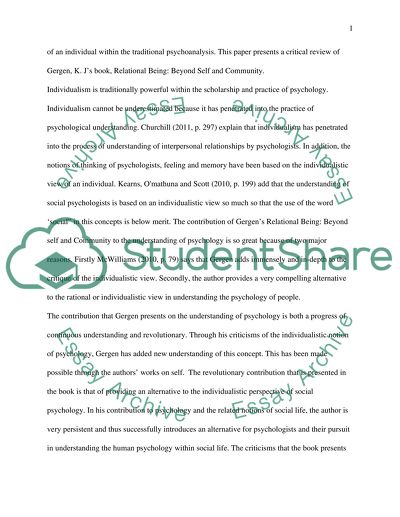Cite this document
(“Relational Being: Beyond Self and Community Literature review”, n.d.)
Retrieved from https://studentshare.org/psychology/1395972-relational-being-beyond-self-and-community
Retrieved from https://studentshare.org/psychology/1395972-relational-being-beyond-self-and-community
(Relational Being: Beyond Self and Community Literature Review)
https://studentshare.org/psychology/1395972-relational-being-beyond-self-and-community.
https://studentshare.org/psychology/1395972-relational-being-beyond-self-and-community.
“Relational Being: Beyond Self and Community Literature Review”, n.d. https://studentshare.org/psychology/1395972-relational-being-beyond-self-and-community.


